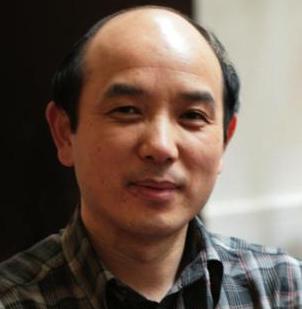China’s president, Hu Jintao, greeted 2012 with an important essay warning that China was being battered by Western culture: “We must clearly see that international hostile forces are intensifying the strategic plot of Westernizing and dividing China, and ideological and cultural fields are the focal areas of their long-term infiltration,” he wrote, adding that “the international culture of the West is strong while we are weak.”
Essentially, Hu was saying that China was under assault by Western soft power — the ability to produce outcomes through persuasion and attraction rather than coercion or payment — and needed to fight back.
Over the past decade, China’s economic and military might has grown impressively, and this has frightened its neighbors into looking for allies to balance rising Chinese hard power. But if a country can also increase its soft power, its neighbors feel less need to seek balancing alliances. For example, Canada and Mexico do not seek alliances with China to balance American power the way Asian countries seek an American presence to balance China.
Already in 2007, Hu told the 17th Congress of the Chinese Communist Party that China needed to invest more in its soft power resources. Accordingly, China is spending billions of dollars on a charm offensive.
The Chinese style emphasizes high-profile gestures, such as rebuilding the Cambodian Parliament or Mozambique’s Foreign Affairs Ministry. The elaborately staged 2008 Beijing Olympics enhanced China’s reputation, and the 2010 Shanghai Expo attracted more than 70 million visitors. The Boao Forum for Asia on Hainan Island attracts nearly 2,000 Asian politicians and business leaders to what is billed as an “Asian Davos.” And Chinese aid programs to Africa and Latin America are not limited by the institutional or human rights concerns that constrain Western aid.
China has always had an attractive traditional culture, and now it has created several hundred Confucius Institutes around the world to teach its language and culture. The enrollment of foreign students in China has increased from 36,000 a decade ago to at least 240,000 in 2010, and while the Voice of America was cutting its Chinese broadcasts, China Radio International was increasing its broadcasts in English to 24 hours a day.
In 2009, Beijing announced plans to spend billions of dollars to develop global media giants to compete with Bloomberg, Time Warner and Viacom. China invested $8.9 billion in external publicity work, including a 24-hour Xinhua cable news channel designed to imitate Al Jazeera.
Beijing has also raised defenses. It limits foreign films to only 20 per year, subsidizes Chinese companies creating cultural products, and has restricted Chinese television shows that are imitations of Western entertainment programs.
But for all its efforts, China has had a limited return on its investment. A recent BBC poll shows that opinions of China’s influence are positive in much of Africa and Latin America, but predominantly negative in the United States and Europe, as well as in India, Japan and South Korea. A poll taken in Asia after the Beijing Olympics found that China’s charm offensive had been ineffective.
What China seems not to appreciate is that using culture and narrative to create soft power is not easy when they are inconsistent with domestic realities.
The 2008 Olympics were a success, but shortly afterwards, China’s domestic crackdown in Tibet and Xianjiang, and on human rights activists, undercut its soft power gains. The Shanghai Expo was also a great success, but was followed by the jailing of the Nobel peace laureate Liu Xiaobo and the artist Ai Weiwei. And for all the efforts to turn Xinhua and China Central Television into competitors for CNN and the BBC, there is little international audience for brittle propaganda.
Now, in the aftermath of the Middle East revolutions, China is clamping down on the Internet and jailing human rights lawyers, once again torpedoing its soft power campaign.
As Han Han, a novelist and popular blogger, argued in December, “the restriction on cultural activities makes it impossible for China to influence literature and cinema on a global basis or for us culturati to raise our heads up proud.”
The development of soft power need not be a zero sum game. All countries can gain from finding attraction in one anothers’ cultures. But for China to succeed, it will need to unleash the talents of its civil society. Unfortunately, that does not seem about to happen soon.
Joseph S. Nye Jr. is a professor at Harvard and the author, most recently, of “The Future of Power.”
Originally appeared on The New York Times. Reprinted with permission.
